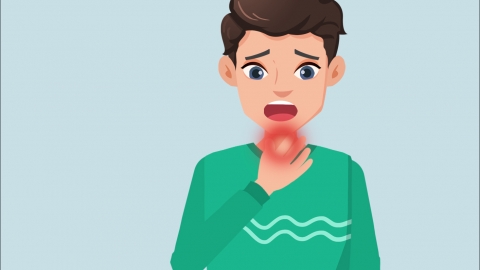How to determine if you have pharyngitis
Generally, to determine whether one has pharyngitis, it can be assessed through observing clinical symptoms, performing physical examinations, inquiring about medical history, conducting routine blood tests, and using endoscopic examinations. If any abnormalities are detected, timely medical consultation is recommended. The detailed analysis is as follows:

1. Observing clinical symptoms: Patients with pharyngitis typically exhibit noticeable discomfort in the throat, such as dryness, pain, a burning sensation, as well as coughing, sputum production, a sensation of a foreign body or blockage in the throat.
2. Performing physical examinations: During a physical examination, doctors may find the pharyngeal mucosa congested and swollen, with hyperplasia of lymphoid follicles on the posterior pharyngeal wall. Sometimes, hyperplasia and enlargement of the lateral pharyngeal bands may also be observed.
3. Inquiring about medical history: Doctors will ask patients about the onset time, duration of illness, past medical history, and lifestyle habits to determine the type of pharyngitis and possible causes. If symptoms worsen during swallowing saliva, it further supports the diagnosis of pharyngitis.
4. Conducting routine blood tests: By analyzing blood samples, if the white blood cell count is elevated with an increased proportion of neutrophils, this may suggest pharyngitis caused by bacterial infection; if the proportion of lymphocytes is elevated, it may indicate that the pharyngitis is related to a viral infection.
5. Using endoscopic examination: If the throat discomfort persists and does not heal over time, it is recommended to undergo electronic laryngoscopy or fibrolaryngoscopy to observe the mucosal lesions in the nasopharynx, oropharynx, and hypopharynx, rule out space-occupying lesions in the pharynx and larynx, and confirm the diagnosis of pharyngitis.
For the treatment of pharyngitis, medications such as Pudilan Anti-inflammatory Oral Liquid, Cetirizine Hydrochloride Tablets, and Yinhuang Suckable Tablets can be used under the guidance of a doctor. At the same time, it is important to improve lifestyle habits, avoid triggers, enhance self-protection, and promote throat health.









